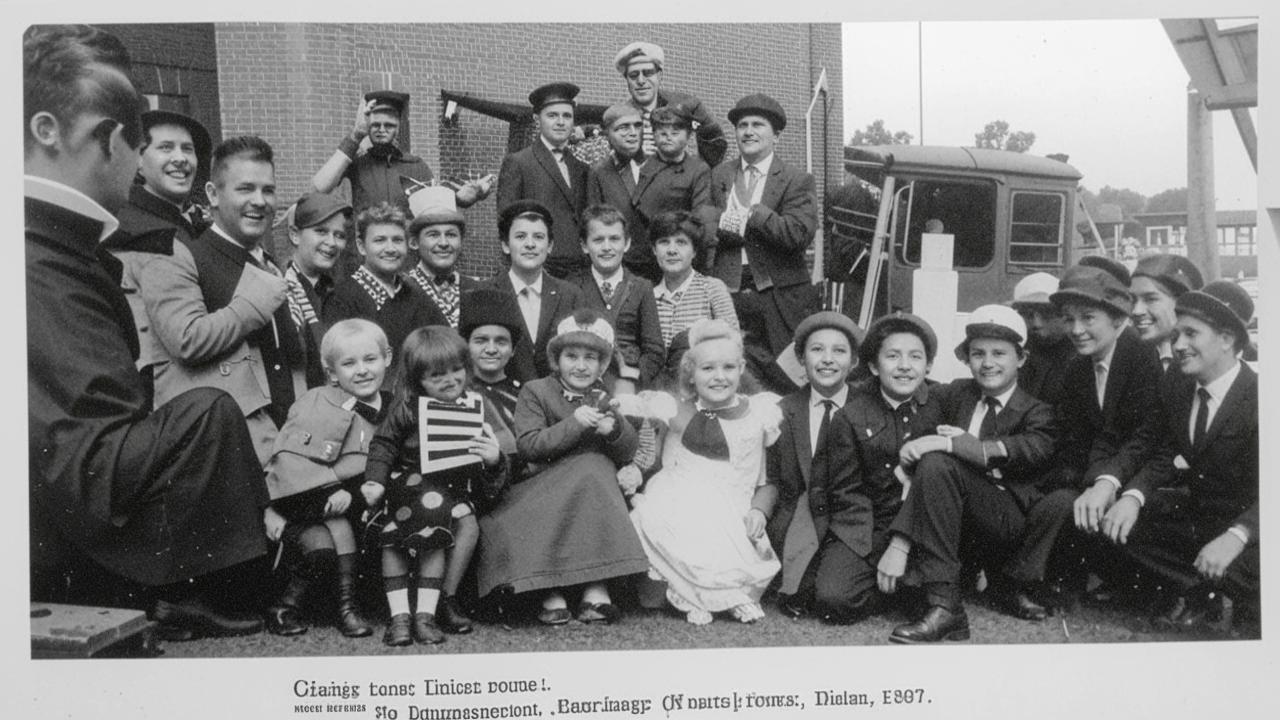
psychologist, orthopedic therapist, expert of the online school of psychological professions “Psychodemia”
“In the last few years, the concept of “co-dependency” has become so widespread that sometimes the meaning of the term is greatly distorted and pathologized. This leads to the fact that people see its manifestations where in fact there is no problem. Let’s get to the bottom of it.”
The concept of “co-dependence” emerged in the 1970s. It originated in the United States. The term was associated with the field of chemical dependency treatment. However, it later spread widely in scientific psychology and later in popular science psychology.
One of the main difficulties is that a share of co-dependency is present in any relationship. Even in the healthiest of relationships. Building sincere intimacy and trust in a couple is simply impossible without falling into a certain degree of emotional dependence on the person dear to you.
So where is the fine line between co-dependence and healthy relationships? Let’s try to find it.

What does the term “co-dependent relationship” mean?
Traditionally, the term has been used to describe the interaction between one or more members of a family in which there is a person with some form of chemical dependency (alcohol, drug).
Robert Sabby and John Friel in their book “Co-dependency, An Urgent Problem” point out that the loved ones of a chemically dependent person develop an unhealthy pattern of behavior in response to their abuse (alcohol, drugs, etc.) – a habit of coping with life’s difficulties in this way.
Today it is generally accepted that this is only a special case. In a broader sense, this includes any form of relationship in which there is a strong emotional dependence of one person on the significant other.
By what signs can you realize that you are in a co-dependent relationship?
Signs of co-dependency
Researchers and psychologists define the terms “co-dependency” and “co-dependent relationship” in very different ways. However, most of them identify common characteristics that signal that something is going wrong.
1. The partners have no personal space
In a co-dependent relationship, there is virtually no space left for the partners to develop comfortably and independently. The co-dependent’s life is almost entirely devoted to the needs and interests of the significant other.
If you look around, this behavior you can notice for a girlfriend or friend who, having entered into a relationship, suddenly begins to completely lose interest in all hobbies, hobbies and tasks that used to be important and fascinating.
The girl who gave up dancing because “her lover said so.” Or a man who no longer goes fishing with friends because his spouse is against it. Also may figure an adult son who dumped a girl because her parents didn’t like her. And his mother, who instead of meeting with friends or any interesting activities she prefers to iron, wash, cook and fully serve the 40-year-old “child”.

It is important to pay attention – co-dependent behavior is absolutely normal if your love relationship has just begun and you are in the stage of active love. However, after some time (on average about six months after the beginning of the candy-bouquet period) the maximum fixation on each other passes.
People gradually build their own interests and needs into the couple’s everyday life. They still remain important and significant for each other, there is still some degree of emotional dependence, but it ceases to be all-consuming.
In co-dependent relationships this does not happen, and over time the person loses more and more of himself. At some point he may simply cease to distinguish between his own needs and the needs of a loved one. Co-dependent partners often literally live with the other person.
2- There is never enough love and acceptance from the partner
In a co-dependent relationship, partners are in great need of love and acceptance from their significant other, but can never get enough of it. No matter how attentive the partner is, the co-dependent will always feel a severe lack of their involvement. The whole point is that deep inside he always feels that he is not good enough and worthy of love. That is why it is so difficult for him to believe in sincere feelings on the part of his loved one.
3- Relationships do not satisfy needs and hinder development
Co-dependent relationships, as a rule, are not able to satisfy the actual needs of a person, and very often even harm it.
In comparison, in a mature relationship, partners realize that a loved one is not their property, but a separate person. They are ready to be near, to accept his individual desires and needs, to support in their realization. Thus, healthy relationships help us not only to be happier, but also easier to achieve individual goals.
In co-dependent relationships, however, this does not happen. The inner problems and life of the other become central. Instead of mutual support and acceptance, partners are in a constant cycle of destructive interaction.
These are not the only signs of co-dependent relationships. However, they are the ones that are the most vivid and indicative.

How does co-dependency manifest itself in a relationship?
One of the classic variants of the manifestation of co-dependence in a relationship is the formation of a rescue triangle (or Karpman triangle). What it is. Despite the fact that the format of interaction is called “triangle”, in fact, it is often a relationship between two people. Simply in the process of communication each of them periodically unconsciously begins to play one of three roles: “rescuer”, “victim”, “stalker”.
1. “Rescuer ” – a role in which a person raises his own importance through helping others, fills life by selfishly taking advantage of their helplessness. He sincerely believes that he does this solely out of altruistic and selfless purposes. In fact, it is as if he takes the position of “on top”, which allows him to feel wiser, stronger, more nimble.
In co-dependent relationships it is a wife who “brings her husband out of a drunken bender”, covers for him in front of the neighbors, etc. Or a manipulator, who with all his abusive behavior constantly closes all financial and organizational issues of a woman (depriving her of the opportunity to realize herself or to be independent).

2. “Victim ” – the role of a man in which he is helpless, unhappy, incapable of making independent decisions and doing something without relying on someone else’s opinion. On the one hand, this position gives an opportunity to receive sympathy and empathy, not to take responsibility for anything. On the other hand, the way of self-development and self-realization is closed for the “victim”.
In co-dependent relationships it is a woman who realizes disrespectful (and sometimes rude, violent attitude), but cannot break the connection. Or an alcoholic, drug addict, gambler who periodically “fails” to cope with his life, and his loved ones come to his aid.
3. “Stalker ” – this role is actualized at the moment when the “rescuer” gets tired of futile attempts to educate the “victim”. At this moment he begins to feel himself as a victim. Anger arises. The former “rescuer” unleashes these negative emotions on the “victim”, turning into a persecutor – a figure who insults, says hurtful words, humiliates.
The “victim” at this point becomes even more unhappy and defenseless. The persecutor’s anger gradually subsides. At this point, the participants return to their original roles: “rescuer” and “victim.”
This is the format in which relationships between a helpless and unaided adult son and an overbearing mother, a wife and an alcoholic or gambling addict husband, etc., have been built for years.
Where does this lead?
Unfortunately, none of the participants in this game can boast of satisfaction in relationships and basically happiness in life. Everyone sacrifices something important in favor of the existence of a co-dependent relationship.
The “victim” becomes more and more helpless, not independent. Her level of self-esteem and self-respect gradually decreases. She often feels an emptiness or total unhappiness inside. However, in return, she receives pity and the opportunity to shift responsibility to another.
“Rescuer”, despite the external nobility, is not really interested in the autonomy of the “victim”. After all, this means the loss of control and authority on his part, in which he is so interested. But in return, paradoxically, he also sacrifices his autonomy. For the only meaning of his existence becomes the salvation of the other. Whereas his own desires, personal meanings, goals and interests go into the background.
Causes of co-dependent relationships
If you have realized that you tend to fall into co-dependent relationships, most likely you are wondering why this happens. It is unlikely that you will be able to find one single reason. Usually this format of interaction with loved ones is formed by a combination of a number of different factors.

1. peculiarities of child-parent relations in the family
There is no single format of upbringing, which forms a tendency to co-dependence in a child. However, most often such children face the following in the family.
- Parents often demand that the child meets their expectations. In the situation, if he does not meet them, dissatisfaction or disappointment is expressed. It is as if the child is being “deprived of love”.
- The child’s needs in the relationship with parents usually have no place. Or closed exclusively material, domestic, but not emotional.
- The parent constantly tells the child how much he sacrifices for his upbringing. Instills a sense of guilt for this. The child lives with the conviction that he owes a lot to the parent and must pay for it all his life: attention, time, lack of his own life, sometimes even money.
- In some situations, the parent not only does not help the child to learn to understand and cope with emotions, but on the contrary – shifts the responsibility for his own emotional state to him. “Here, look, because of you I got angry/upset again!”. Or simply can not cope with his emotions and tells everything to the baby, using him as a “vest”. It is important to realize that the parent should be a kind of “emotional container” for the child, not the other way around.
- Often people prone to co-dependency faced in childhood with non-acceptance, criticism, dissatisfaction on the part of a significant adult. It is in this relationship that they first internalize the idea that you are not good enough on your own to be loved.
All this creates the preconditions for a person to feel “wrong” or simply unworthy of love “just like that”. Therefore, once in a partner relationship, he is insanely afraid of losing it and is ready to do everything to prevent this from happening.
2- Features of a person who is prone to co-dependent relationships
There are several typical psychological portraits of people who most often choose this type of relationship for themselves. Depending on this, they will have some psychological characteristics.
Common psychological traits for all co-dependents will be the following:
- insecurity (even with outward bravado and ostentatious confidence, as in the situation with narcissism);
- A high level of self-demands and a feeling that “I am not enough to be loved”.
Painful perception of criticism; - persistent feelings of guilt and shame;
- intense fear of failure;
- fear of loneliness;
- difficulty defining one’s own and others’ boundaries.
Depending on whether the dominant or sacrificial position a person is most likely to take in a co-dependent relationship, he or she will either be inclined to control the loved one or, conversely, to hand over responsibility for his or her life to another.

Influence of social attitudes
In Russia, co-dependent relationships are so widespread also because of the historical past. Feudal society, many years of serfdom, the socialist past of our country – all this created the preconditions for the development of those personality traits that are characteristic of co-dependence.
For example, the absence of private property and personal space in general definitely contributes to the formation of weak personal boundaries, and a long stay under the rule of a feudal lord – a calm attitude to total control and inability to take responsibility for one’s own life.
Today we see tendencies to make the problem of co-dependency visible and to discuss and fight it. However, global change takes time.
What will help to get out of a co-dependent relationship?
Ending a co-dependent relationship can be difficult. According to statistics, women return to their partner on average seven times before breaking off such relationships permanently. It is not uncommon for people in a couple to feel unhappy and dissatisfied for years, but not find the strength to end it. At some point, it may begin to seem like there is simply no way out of a co-dependent relationship. In reality, there isn’t.
So what actions should you take?
1. Psychological counseling and psychotherapy
Let’s be honest, it is difficult to overcome your co-dependency. It is even more difficult not to fall back into such a relationship. In many cases, it is possible to understand why you choose this particular format of interaction only with the help of a specialist.
You need to be prepared for the fact that the road will be long. In addition, it is important to choose a specialist who does not just have an abstract understanding of the topic, but also has experience in working with addicted clients, as well as relevant knowledge and competencies.
Prepare yourself for the fact that you will not only have to discuss your partner and his unacceptable behavior towards you, but also look inside yourself.
2. Develop awareness, self-awareness and respect
If you notice a tendency to build co-dependent relationships, the first and foremost thing you can do is to shift your focus to your personal needs.
To realize them, you can:
- Begin to develop daily mindfulness skills. Simple techniques can help you with this: a journal of feelings and emotions, meditative practices;
- make a list of your own desires and interests. And start realizing them;
- In your daily routine, try to shift your focus from your partner’s interests and desires to your own. During the day ask yourself the question: “What do I want now?”.
Contact with yourself, your own needs and desires is what partners in co-dependent relationships lack. And what most often makes them feel unhappy and unsatisfied. It’s very difficult to change this. But if you gradually learn to shift your focus to your personal needs, change will definitely start to happen.

3. Setting boundaries and consciously accepting responsibility
We discussed above that partners in co-dependent relationships most often move between several familiar roles, each with its own characteristics.
To gradually move out of the role of “victim,” “rescuer,” or “stalker,” it pays to start noticing it. It is important to learn to get into the position of a neutral observer.
When you fall into one of the classic roles in a co-dependent relationship, it captures you so much in the moment that it can be hard to really change anything. Once you step out of this vicious cycle and examine what is happening with the attention and curiosity of an outside viewer, you have a much better chance of making a difference in your life.
If you recognize yourself as a “rescuer,” important steps for you will be to set clear boundaries in your relationships, and to keep track of your true needs.
If you are most often the “victim,” the leading way for you to leave the triangle will be to take responsibility for yourself and your life.

Co-dependent relationships are a very strong and stable construct. Although, if you observe them from the outside, it may not seem that way. Because in them there are often many conflicts, scandals, dissatisfaction with each other and active aggression. But in fact, in such a “combat mode” people coexist with each other for years, and nothing changes.
Except that the resources of each of the participants in such relationships are gradually depleted. And this affects all other spheres of life of co-dependents.
That is why it is important to timely track the moment when the relationship begins to constantly take energy.
Conflicts and misunderstandings are also part of normal interaction. In a mature relationship, all of this is present. However, quarrels are not the central and most important part of it. And the relationship itself is only a part of your life, not the center of everything.
Your personal needs are just as important as your partner’s interests and desires. And everyone in the couple must be in agreement with this statement. This is a key thing that people in co-dependent relationships don’t realize.






